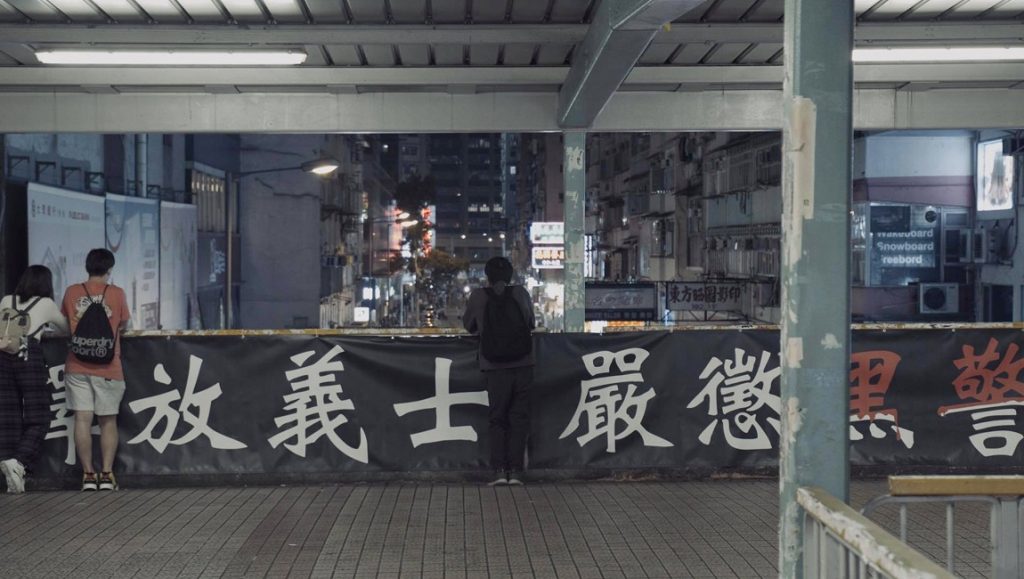Broadcasting its ambitious scope with its borrowed title, Rita Hui Nga Shu’s Decameron sets out to encapsulate the tenor of current day Hong Kong following a year of COVID lockdown and mass protest against the Chinese government’s significant influence over the semi-autonomous nation. Hui spins out a loose, free-floating narrative that moves between the hyper-recent and matters of historical record, eventually forming a broad essay, albeit one that favors vibes over explicit rhetoric.
That’s not to say that Decameron is without a specific thesis, but rather that this isn’t its primary fixation. Early on, the film introduces archival footage of Hong Kong’s final British Governor Chris Patten issuing his patronizing 1997 farewell speech, framed in a small square suggesting the perspective of a camera phone. Patten’s talk of the wonderful infrastructure installed by the British is soon contrasted with details of the 1894 Hong Kong Plague, which would persist for 35 years and claim over 20,000 lives, the result of the colonial government forcing the Hong Kong citizenry into cruel, unhygienic living conditions. This naturally flows into comparisons to the Chinese government’s handling of the COVID epidemic in 2021, establishing a general timeline of imperialist abuses exacted against Hong Kong, the bleak inevitabilities of colonialist rule that can only be overcome through democratic self governance, Hui implies. These sequences give context for the ideological leanings of the filmmakers, but they don’t really represent Decameron’s aesthetic otherwise, a foundation upon which much meandering verite documentary is built atop of.
The film’s other strands blend together scenes of domestic and work life in post-Covid Hong Kong, along with seemingly surreptitiously recorded protest footage, capturing the sounds and fleeting images of police brutality (the small 1:1 camera phone aspect ratio a frequently used tool). There’s also footage of alternative, performance/art-based activism used to stir up public conversation where the government enforces silence, the most intriguing of which is a fraught, likely staged conflict between one such activist and the notorious murderer Chan Tong-kai whose crime in part inspired the 2019 Hong Kong extradition bill that set off the initial wave of protests. It’s a lot to throw at an audience, and at times Hui feels as if she’s editing on instinct, with unpronounced transitions bearing out indistinct boundaries between each narrative. The overall effect is a bit scattered, perhaps as broad and reaching as Boccaccio’s canonical novel, but without a parallel focus or intricacy. Instead, Decameron aims to sum up the moment it depicts by depicting a lot of it, which makes for a pretty egalitarian, well-rounded essay film, but not always an engaging one. Hui has captured an immediate, on-the-ground perspective of 2020/2021 Hong Kong, with broader interrogation saved for history (U.S. involvement goes untouched). Decameron offers a maybe too-quick sketch of this moment, though done so with intention and an interesting formal hook, with the spontaneity and passion behind the production quite apparent.
Published as part of IFFR 2021 June Programme — Dispatch 3.


Comments are closed.